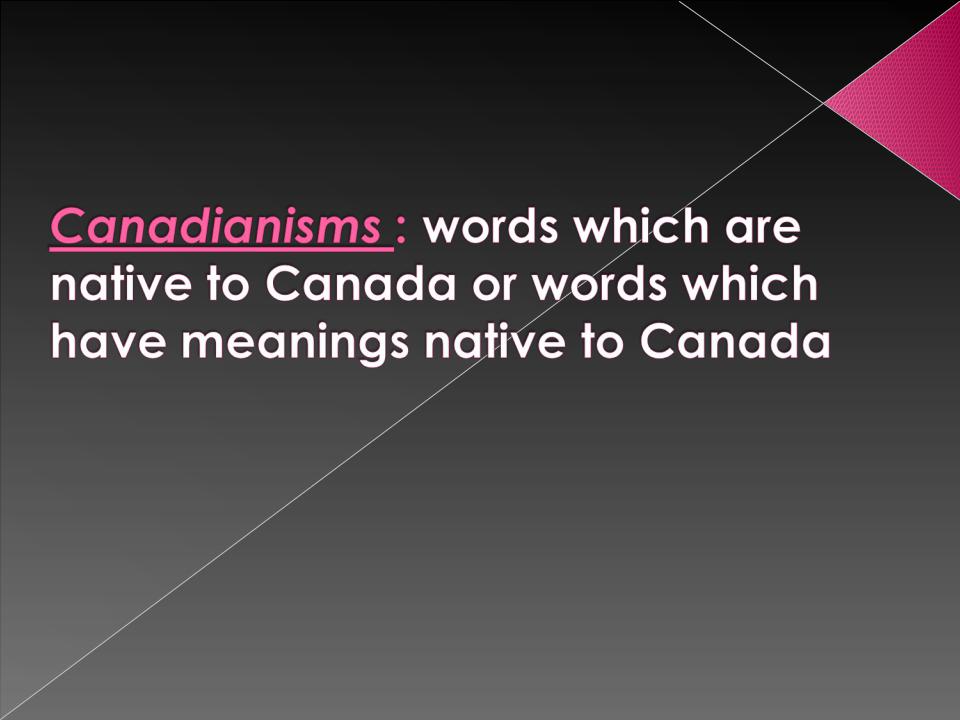
- •Canadian English is the form of English used in Canada, spoken as a
- •Canadian and American English may sound very similar, but the spellings used in
- •One of the most salient characteristics of Canadian English is the pattern that
- •Pre-rhotic vowels
- •Borrowings with low vowels
- •Many Americans regard eh as characteristic of Canadian
- •Where Canadian English shares vocabulary with other English dialects, it tends to share
- •Allophone
- •NATIVE PEOPLES
- •GOVERNMENT, LAW AND POLITICS
- •SPORTS
- •all dressed : A hamburger with all the usual condiments on it
- •bursary : A financial award to a university student (also Scottish and English)
- •Other words have different meanings in Canada, the United States and Britain.
- •Canadian
- •Canadian English is the outcome of a number of factors. It is strongly
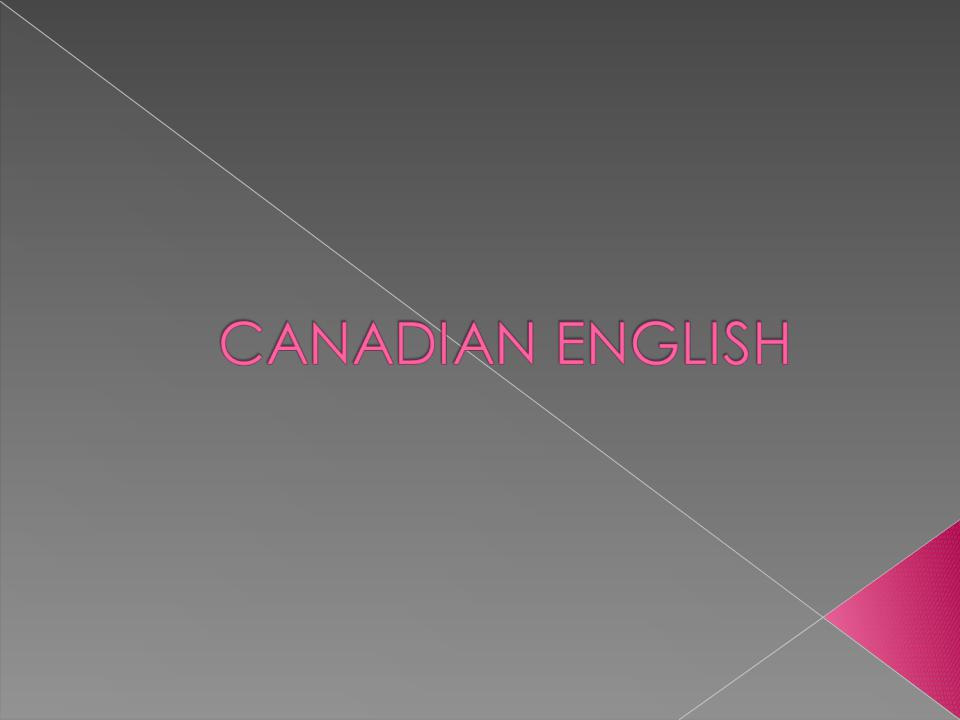
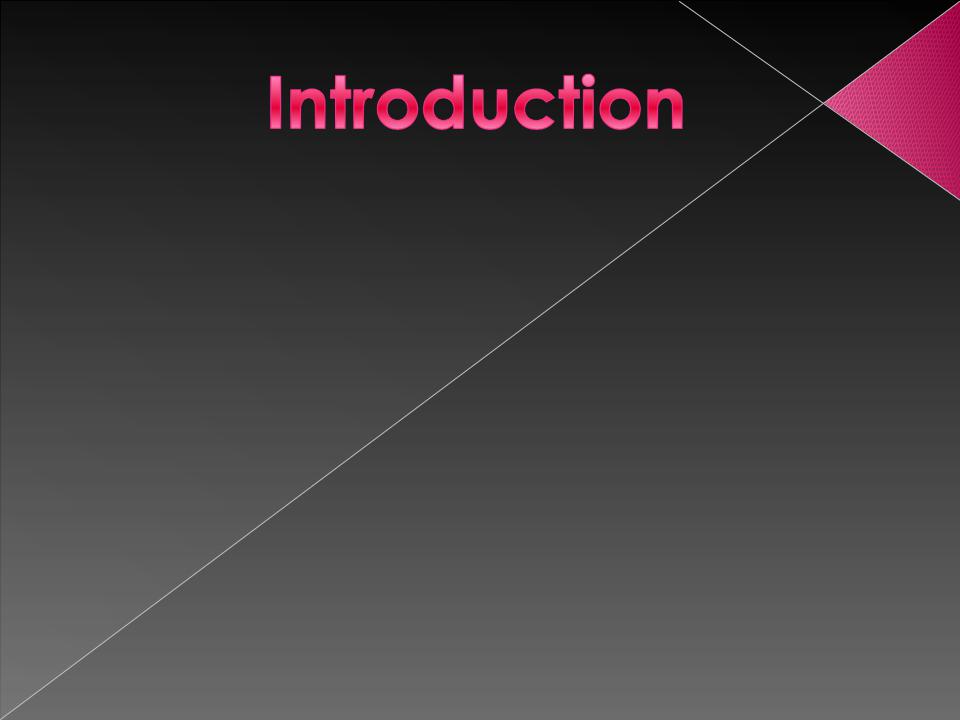
Canadian English is the form of English used in Canada, spoken as a first or second language by over 25 million Canadians (as recorded in the census of 2001).
Canadian English spelling is a mixture of American and British. Pronunciation of the English language in this country is overall very similar to American pronunciation, which is especially true for Central and Western Canadians. The Eastern provinces of Newfoundland and Labrador, Nova Scotia and Prince Edward Island have a maritime accent which overall sounds more similar to Irish pronunciation than American. There is also some French influence in pronunciation for some English-speaking Canadians who live near, and especially work with French-Canadians.
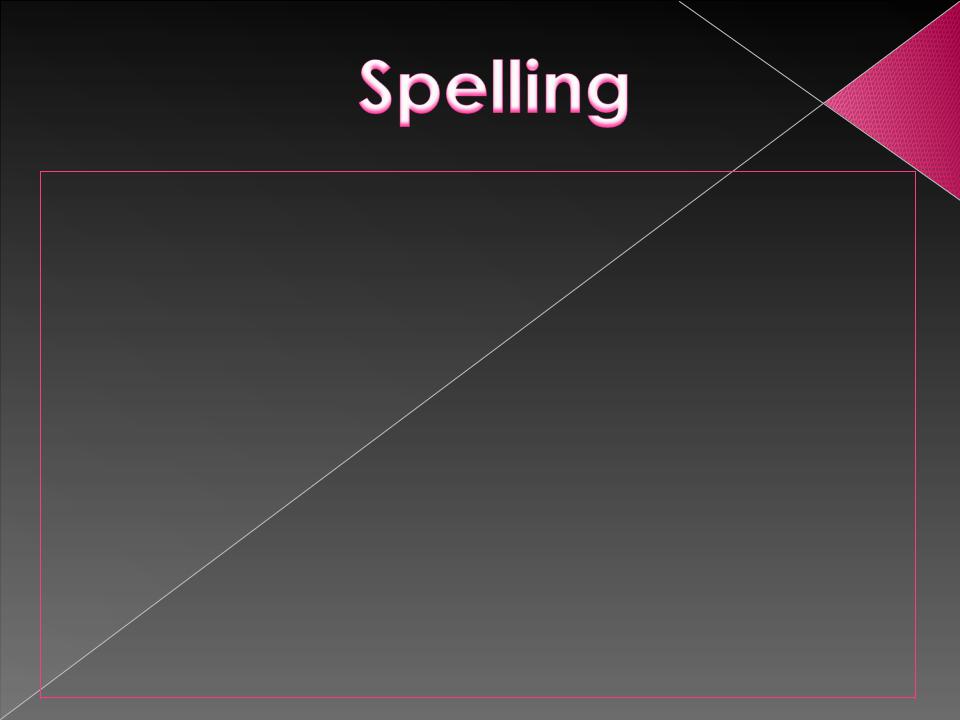
Canadian and American English may sound very similar, but the spellings used in each version of English vary considerably. Canadian English does not specifically follow the spellings listed here. Often both forms of spelling are used, but the spellings below are the most-used forms that you find in each language.
-Or and -Our
In Canadian English, people spell words with the -our ending such as colour, labour or favour. American English spells these words color, labor and favor.

One L or Two
Canadian English uses fulfil whereas American English uses fulfill. However, Canadian English will use cancelled, and American English spells it canceled.
-Er and -Re
American English spells words with an -er ending like center or centered and theater, but Canadian English uses the -re version of centre or centred and theatre.
-Que and -Gue
In Canadian English, words generally use the -que and -gue spellings. Canadian English spells words like catalogue and cheque. However, American English uses catalog or check.
In other cases, Canadians and Americans differ from British spelling, such as in the case of nouns like tire and curb, which in British English are spelled tyre and kerb.
Considerations
While Canadian English favors the more traditional British spellings, some British rules are not used in Canada, such as the -ise ending in Britain rather than an -ize ending.
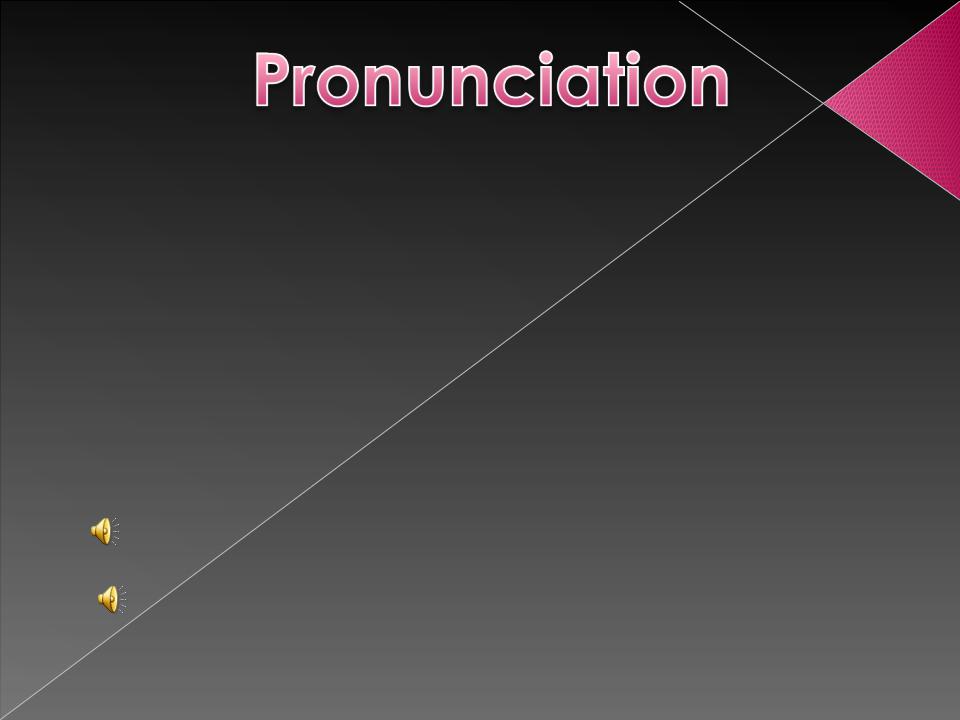
One of the most salient characteristics of Canadian English is the pattern that linguists call "Canadian Raising". In the general discussion of diphthongs, we saw that English has three phonemic diphthongs. Two of these have low vowels as their nucleus: as in ride and as in loud. In Canadian English, both these diphthongs have variants whose occurrence is obligatory under certain phonological conditions. Before a voiceless consonant, the diphthong replaces , and replaces . These variants are called raised or centralized diphthongs, because their nucleus is no longer a low vowel.
Loud,lout
"Knife, knives"

Pre-rhotic vowels
Another characteristic of Canadian vowels is in the distribution of pre-rhotic (before-r) vowels. A notable aspect of Canadian pre-rhotic vowels is their resistance to the emergent pattern in
American English of substituting [a] for [o] before inter-vocalic
[r]. In a number of highly frequent words, such as sorry, tomorrow, borrow, sorrow, and Laura, this pattern has become obligatory in American English. The pattern is also variably evident in a few more words, such as Florida, orange, oracle,
Norwich, adorable, and thesaurus.
The current variability in the pattern suggests that American
English is losing [o] before intervocalic [r], but Canadian English maintains [o] in all of these forms. The result is a contrast between the American pronunciations, like [sari] and [baro], and the Canadian pronunciations, [sori] and [boro]. To our knowledge, this feature is not discussed in any published discussion of Canadian dialectology, but we propose that it is a definitive marker of Canadian English.
"Sorry, I left my oranges and chocolate in the forest"

Borrowings with low vowels
A final, curious property of Canadian English is in its foreign /a/ nativization. This is the way the dialect pronounces borrowed words with low vowels, such as pasta, Mazda, drama, and taco. There is a strong tendency for Canadians to pronounce these words with a front , while Americans tend to use [a].

Many Americans regard eh as characteristic of Canadian
English. Like Canadian raising, eh is used by some citizens of southern Ontario.
interrogative
"You like it, eh?"
narrative
"We had pizza, eh, and beer"
traditional greeting
"How's it going, eh?"
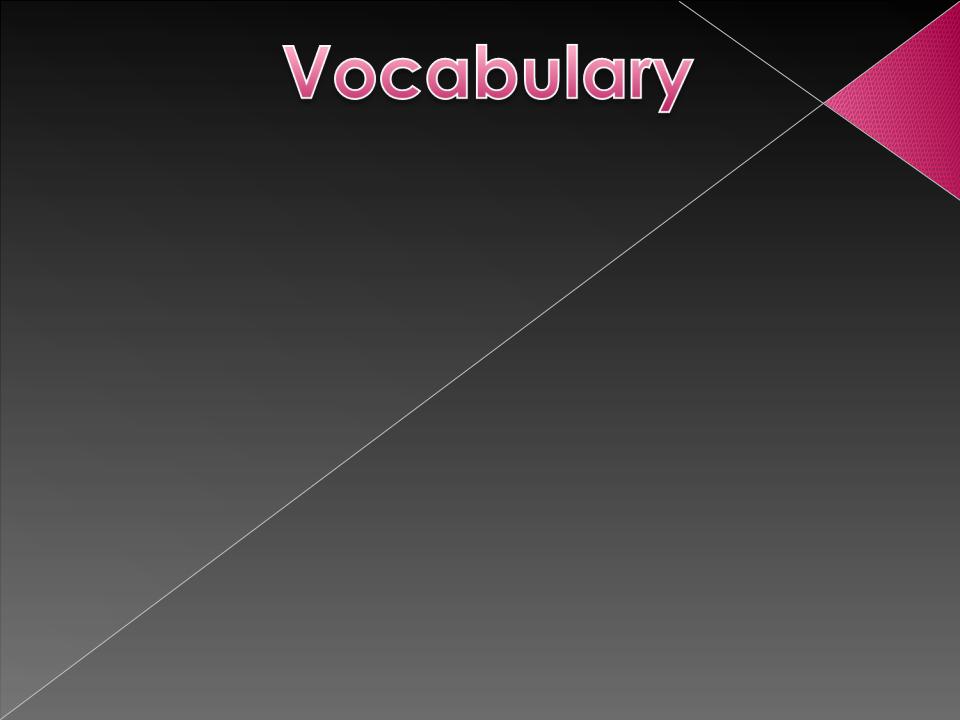
Where Canadian English shares vocabulary with other English dialects, it tends to share most with American English. Many terms are shared with Britain, but not with the majority of
American speakers. In some cases British and the American terms coexist in Canadian English to various extents; a classic example is holiday, often used interchangeably with vacation, distinguishing the two between a trip elsewhere and general time off work respectively. In addition, the vocabulary of Canadian English also features words that are seldom (if ever) found elsewhere.

Allophone |
A resident of Quebec who speaks a first language other |
|
than English or French |
Anglophone |
Someone who speaks English as a first language. |
Biffy |
An outdoor toilet usually located over pit or a septic tank |
Chesterfield |
A sofa, couch, or loveseat (also used in Northern |
|
California and Britain) |
Click |
Slang for kilometre. |
Francophone Someone who speaks French as a first language Joe jobA lower-class, low-paying job
Runners |
Running shoes; sneakers |
|
Sook or suck |
A crybaby. |
|
Ski-Doo |
A brand name now used generically to refer to any |
|
|
snowmobile. Can also be used as a verb |
|
Sniggler |
Someone who takes the parking spot you wanted, or who |
|
which |
otherwise does something perfectly legitimate, but |
|
nonetheless inconveniences or annoys you. |
||
|
